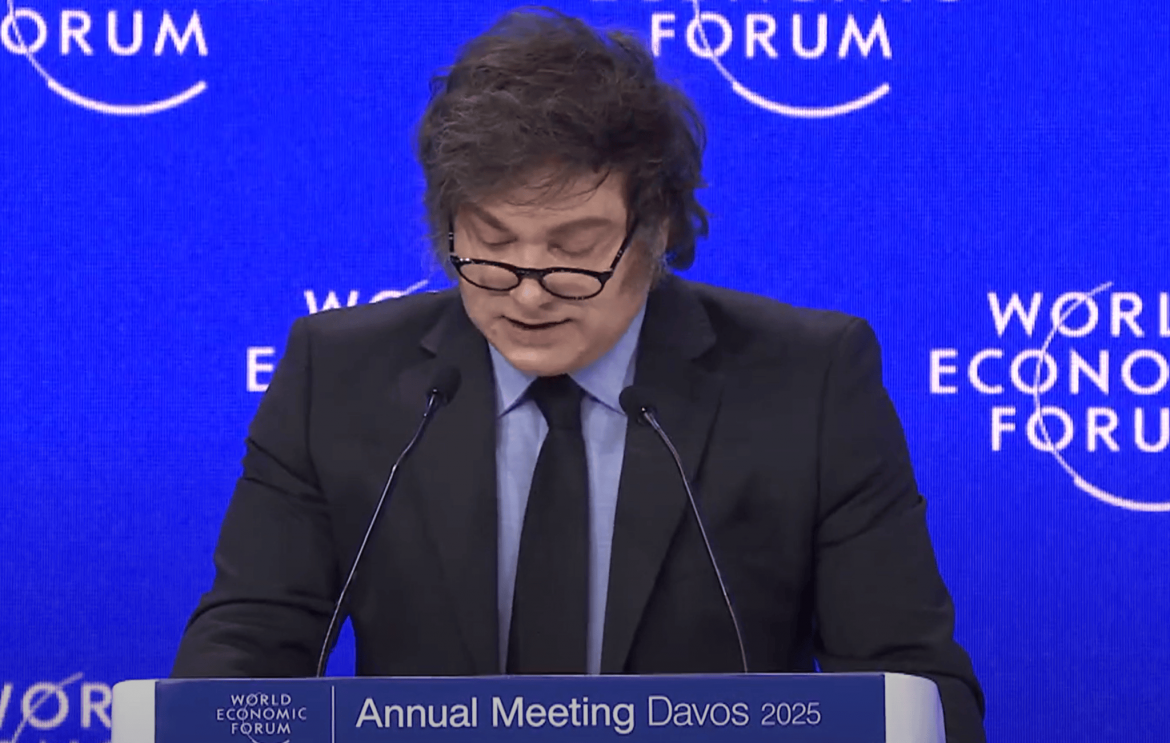On January 23, Javier Milei delivered his latest speech on challenges to Western Civilization at the World Economic Forum in Davos. It was long, detailed, bold, and compelling.
One part of the speech, however, lacked the clarity and coherence of the rest. I am referring to his discussion of the theory of market failure. His argument against it rested on the assertion that it is often employed to advance anti-market agendas and is a contradiction in terms.
It is indeed true that the theory of market failure is often disingenuously invoked by those who are looking for cover for government interventionism. But the ends to which things are used often tell us little about their inherent goodness or wisdom. Few good or wise things have never served as a tool for some bad or foolish actor.
As for being a mere contradiction in terms, nothing could be further from the truth. In reality, the theory of market failure is a powerful tool for understanding the appropriate limits of government and persuading others why these limits are not arbitrary.
Building on work that goes back to Adam Smith’s Wealth of Nations, Vilfredo Pareto worked out a formal proof of the first welfare theorem of economics in 1909. This was the first step in demonstrating why the free market economy automatically takes us where we want to go if a number of assumptions are satisfied.
In 1920, Arthur Pigou investigated what happens when those assumptions are not met, as well as what might be done to bring the market system back to best promoting the common good. This launched the body of knowledge we now call the theory of market failure. Milei’s assertion that market failure is a contradiction in terms appears to be oblivious to this work.
To better appreciate the power of the theory of market failure, divide all human activity into two realms: one in which it occurs in completely voluntary fashion and one in which it does not. In 1954, Kenneth Arrow, Gerard Debreu, and in a separate paper, Lionel McKenzie, rigorously identified the assumptions that had to be met to presume that the voluntary realm (the free market society) will best promote the common good.
Unfortunately, sometimes these assumptions aren’t met. For example, a particular market might not be competitive (monopoly), consumption might be non-excludable (national defense), or there might be costs imposed on society that are not borne by either the buyer or seller in a transaction (pollution). In cases like these we cannot say with confidence that voluntary transactions and fully delegated property rights are enough to squeeze the most social welfare possible out of the resources we have.
One particularly compelling rationale for government is that it exists to house power needed to improve performance in this second realm. Societies that refuse to do this are fun to dream about, but in the real world societies are in competition with one another and those that can increase their efficiency by addressing market failures are more likely to conquer than be conquered.
Think about every function of government that virtually everyone agrees is legitimate; things needed even for a purely nightwatchman state described by Robert Nozick. These functions apply power in a way that ensures that socially beneficial things happen that would not otherwise happen in a world of purely voluntary transactions.
In my view, Milei has it backwards. The theory of market failure is not inimical to the free market society. Instead, it produces a bright and objective line that divides the legitimate realm for the exercise of government power from everything else: the private realm. But it does not follow from the above that all demonstrable market failure problems warrant the use of government power to address them.
There are several reasons why this is true. The most well-known is the idea of government failure, which happens when the cost of using government to address a market failure exceeds the benefits of doing so. There are also situations in which the liberty that must be sacrificed to address the problem is simply too high a price to pay. For many, a good example of this would be having conscription during peacetime. What this means is that the demonstration that something is subject to a genuine market failure problem is a necessary, not a sufficient, condition for justifying the use of government power.
This is a more powerful distinction than it first appears. It reverses our instinctive presumption that we need something like the government to be in control of most things. Because of the theory of market failure, the tables are turned on those eager to exercise government power. No longer must we demonstrate why we should leave something to the free market. The onus is on those who wish to employ government power to explain why what is before them is a genuine market failure. The theory of market failure provides objective criteria for evaluating whether such a case has been made adequately. And even then, they have only satisfied a necessary condition for the exercise of government power.
In any true democracy, voters can change anything. It follows that any free market democracy that wants to stay that way should take care to ensure that as many current and future voters as possible know enough economics to understand why the exercise of government power outside of the realm of market failure befits a government that is working to build a utopia rather than a government that is working to protect the liberty of its citizens.
